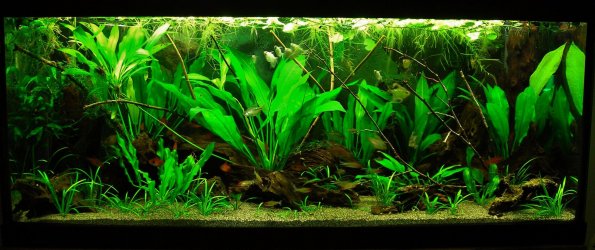Ich is present in wild habitats, yet the fish manage. In the close confines of an aquarium everything is amplified. But there are reputable hobbyists and biologists who believe ich is present in most of our tanks but we never see it until the fish are severely stressed and their resistance weakens. This explains why you can have for example a tank of fish for more than a year with nothing new entering, but if the heater should fail at night and the tank suddenly chill, all the fish suddenly have ich. Obviously it has to have been there all along.
Fish have to build defenses against many pathogens if the species is to survive. We wouldn't have fish on this planet if this were not the case. Stress is the direct cause of 95% of all fish disease in the aquarium. The pathogens, parasites, bacteria, or whatever may be present, but it is stress inflicted on the fish that causes it to succumb in 95% of the time. So avoiding stress is good prevention. And avoiding stress has many facets: suitable water parameters, adequate tank size, suitable aquascape, compatible species, adequate numbers for shoaling species, proper water flow (if any), all factor in.
The ich parasite is only defenseless during the brief free-swimming stage; after they hatch out from the cyst, they must find a host within 24 hours (roughly). If not, they die. And it is only at this stage that we can kill them with salt, etc. Some maintain that high heat (90 F) will kill ich on its own. This is fairly high temperature though for many fish, so most advise increased heat and salt, or similar.


